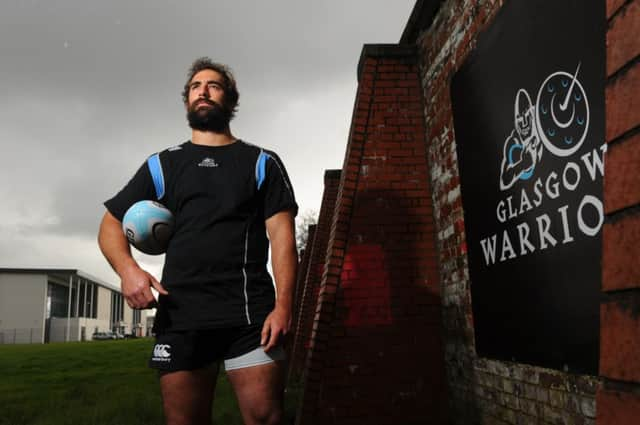Allan Massie: Imports don’t improve national side


But Leinster, Munster, Ulster and, latterly, Glasgow have done better in the league than the Welsh regions. This may be partly because of the long-running dispute between the four regional clubs and the Welsh Rugby Union, chief cause of which was the clubs’ complaint that they were being inadequately subsidised by the Union. The peace deal just signed by which the WRU assumes financial responsibility for a number of international players who have central contracts may, if it proves satisfactory, lead to better performances by the Ospreys, Scarlets, Cardiff Blues and the Dragons.
There are of course other reasons why the Irish clubs have been so successful. Unlike the Welsh and unlike us, they have managed to keep almost all their stars. Last season Jonny Sexton was, I think, the only member of the Ireland squad playing his club rugby in another country. Several Welsh internationals were playing in France – and more are doing so this season – while almost all the Scottish pack were with English or French clubs: Kelly Brown, Johnny Beattie, Richie Gray, Jim Hamilton, Alasdair Strokosch, Euan Murray and Scott Lawson. One might add John Barclay even though our interim coach Scott Johnson ignored him last year, and now one must also add Chris Cusiter and Greig Laidlaw, who have moved to Sale and Gloucester respectively.
Advertisement
Hide AdAdvertisement
Hide AdThe SRU has been quite content to see players move from Scotland, on the grounds this gives opportunities to younger ones and so provides greater strength in depth for the national side. This is probably true. Nevertheless, Glasgow and Edinburgh would be stronger if all these exiles were available to them (Euan Murray has of course now returned to Glasgow).
Every professional club, in the northern hemisphere anyway, imports players not qualified to play for the country in which that club is based. One might argue that the Irish provinces have generally over the years made a better choice of imports than the Welsh and Scottish ones, though Glasgow have recruited pretty well recently. Josh Strauss, D T H ver der Merwe, and the two Fijians, Niko Matawalu and Leone Nakarawa.
Edinburgh’s coach Alan Solomons has been recruiting heavily from the southern hemisphere. Coming into the job after the beginning of last season, he clearly regarded his early months as a holding operation. Now he has the squad he wants, though, sadly, Matt Scott and David Denton are injured and will miss the first months of the league. The squad has been given a demanding and rigorous pre-season, and is reportedly fitter, physically stronger, and ready to play the style of game their coach demands. By all accounts this is unlikely to be very expansive.
Solomons has discarded a number of players who have served Edinburgh and Scotland well: Ross Rennie, Nick De Luca and Lee Jones for example, while, as already remarked, the captain Greig Laidlaw has departed, seemingly of his own volition. The coach has also apparently decided that fly-half Harry Leonard, whom Edinburgh have been grooming for three years, is not going to make the grade. So he has gone. This may be a mistake, for there are times when he has looked good, even in a struggling side. However, Solomons has also brought back the lock Fraser Mackenzie, who shone for Edinburgh before he departed, first for Sale, and then Newcastle.
On the face of it, most of the imports seem a bit short of top-class, though the flanker Cornel Du Preez was impressive last season. On the whole, however, they don’t look like players who can transform a team or even give a struggling one a lift. Most, including the new club captain, Mike Coman, a New Zealander, are here because they didn’t quite make it in their own country. Of course, it’s harder to do that in New Zealand or South Africa than it is here in Scotland.
Solomons has said several times that he is trying to build a club, rather than just a team, and makes much of the young Scottish players he has recruited. This is fine, so long as they get the chance to develop. Some of the imports are already eligible for Scotland because parents or grandparents were born here. Others like WP Nel, who joined Edinburgh a couple of years back, will eventually qualify by residency. Being qualified doesn’t, of course, mean that you are good enough to be selected.
In any case, though a good many players born, reared, and with experience of playing provincial rugby in the southern hemisphere have been capped for Scotland, only a handful, since the game went professional, have established themselves in the national side: Glen Metcalfe, John and Martin Leslie, Nathan Hines and Dan Parks. Metcalfe and Hines were not imported or “project” players, but came here of their own accord and got professional contracts on the strength of their performances in amateur club rugby.
In short, imports may do much for Glasgow or Edinburgh, but we shouldn’t look to them to repair our sad recent international record.